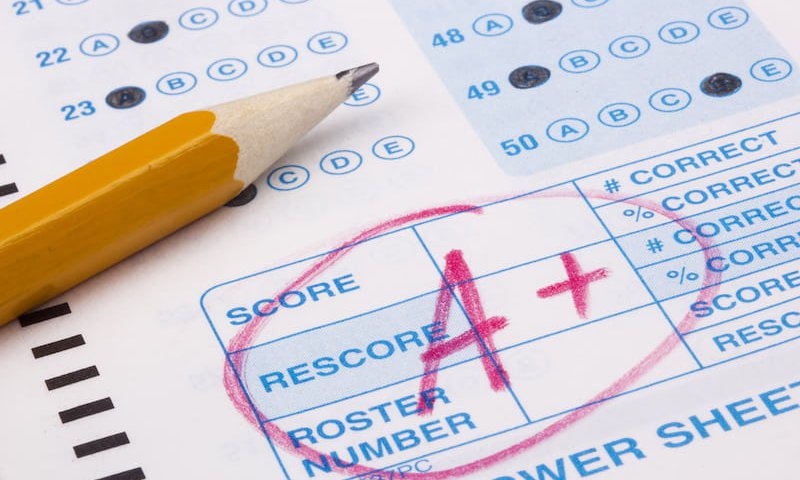Summer exams: Teacher knows best!

“GCSE and A level exams in England will be replaced by grades decided by teachers. Mock exams, coursework and essays will be used to make these decisions. Schools will be able to opt into externally set tests to help with the process, the results will not be binding. Students will be able to appeal against grades.”
These are the headlines; this article explores some of the detail schools and colleges should be aware of, in order to prepare for the mammoth task ahead.
What do you need to know?
1. Teacher assessed grades
GCSEs and A Levels this summer will be awarded using teacher assessed grades based on a range of evidence. The clear view is that in the absence of exams, teachers are best placed to determine grades.
The proposals aim to balance, on the one hand, flexibility for teachers on the range of evidence they use to demonstrate their students’ performance with, on the other hand, achieving results that are as consistent as possible to promote public confidence in the grades.
2. Only assess content that has been taught
Teachers’ judgements this year should only be made on the content areas that have been taught. Teachers should assess as much course content as possible to ensure in their judgement that there has been sufficient coverage of the curriculum to enable progression to further education, training, or employment, where relevant.
3. The range of evidence to be used
Teachers should use their own expertise to decide the range of evidence that will enable their students to show what they know and can do, within parameters set by the exam boards. Exam board guidance will set out a list of sources of and approaches to collecting evidence most effective in determining grades, considering the need for these to be undertaken remotely, if necessary. Teachers are expected to draw on different sources of evidence when forming judgements and Heads of Centre should be satisfied that the range of evidence used corresponds to what has been taught. Schools and colleges should be able to use evidence from throughout their students’ course of study.
4. Materials to support teachers’ judgements
Exam boards will provide a package of training and support materials on how to make judgements, including assessment materials. This is likely to include grade descriptors for at least alternate grades, sets of questions, mark schemes, example answers and other guidance. This guidance should also include training on how to make objective judgements, to minimise the possibility of bias.
5. Future assessments
It is important any future assessments can be undertaken remotely to accommodate any possible course of the pandemic. Teachers are required to use a consistent evidence base for all of their students in a subject, wherever possible, to support consistent judgements, in line with requirements in a normal year.
6. Reasonable adjustments for disabled students
Teachers are expected to make reasonable adjustments for disabled students under the Equality Act 2010 in relation to work set, where the need for such adjustments has been identified.
Where this has not been possible in respect of evidence already collected, or where a student is unwell at the time of a forthcoming assessment, teachers are expected to substitute this evidence where possible. If not possible, teachers are expected either to take account of the impact of the absence of the reasonable adjustment when making their judgement, or to disregard that evidence, so as not to prejudice the overall judgement.
7. Coursework
As many students as possible should have the opportunity to continue to work on their course work assessments. Teachers are required to use these assessments in accordance with exam board mark schemes and, depending on the content they have been able to cover, the contribution they make to students’ overall grade should remain broadly similar to a normal year.
Exam boards’ guidance will support teachers to take account of partially completed coursework where completion is not possible.
8. Exam board assessment materials
The exam boards’ assessment materials are to contain sets of questions, for all relevant GCSE, AS and A level subjects, taking a consistent approach across exam boards for each subject. These will include a combination of questions, both published and unpublished, with a proportion of unpublished questions in all subjects. These questions will be accompanied by mark schemes, example responses and data on past performance where available, to support teachers in making their judgements. The questions will be organised to help teachers easily find and draw out questions which relate to the areas they taught, and they will be made available in various modified formats, so they are accessible to all.
The boards’ assessment materials should be made available by the end of March, but there is no set date by which teachers must use them, other than in time to submit grades by 18 June.
9. Exam board quality assurance
Exam boards will provide an additional layer of scrutiny to ensure schools and colleges adhere to the exam boards’ requirements. These quality assurance arrangements are designed to make sure the process and evidence used by schools and colleges to award grades are reasonable.
The exam boards will be entitled to undertake checks of all schools’ and colleges’ internal quality assurance processes before grades are submitted to them and to check samples of the evidence to support students’ proposed grades.
10. Checks of evidence
To promote fairness in the awarding of grades, checks of evidence will be undertaken to help ensure schools and colleges have an appropriate and robust process for determining grades and reviewing their judgements. Where robust investigation indicates that a school’s or college’s grades might not be justified, the exam board will ask the centre to investigate.
Checks of evidence will take place in a sample of schools and colleges, to be identified through a combination of a random sample and some more targeted checks of schools and colleges based on certain criteria.
The following criteria will be used to identify schools and colleges for further checks:
- Where the schools’ and colleges’ submitted grades appear significantly lower or higher than past performance
- Where there have been significant changes in entry patterns
- Where a centre is identified as needing additional support, for example because it is a new centre
11. Malpractice
Ofqual will be entitled to ensure the exam boards take all reasonable steps to prevent malpractice, to detect and investigate malpractice where it is suspected, and to take action against those responsible which is proportionate to the gravity and scope of the malpractice.
12. Results day will be brought forward
Students are likely to receive their results for A/AS levels and GCSEs in the same week, on 10th and 12th August, respectively.
13. Students will see the evidence before grades are submitted
Schools and colleges are required by the exam boards to allow students to see the evidence on which their grade is to be determined before grades are submitted, so that students have the opportunity to raise mitigating circumstances and identify errors in advance.
14. Appeals
Every student who believes their grade does not reflect their performance or has not been properly determined, will have a clear route to appeal this year.
If a student believes their grade is wrong, they will be able to ask their school or college to check for errors and make sure they followed their own process correctly.
If a student still believes their grade is wrong, then the school or college will submit an appeal to the exam board on their behalf.
The exam board will review both the process the school or college has followed and the evidence on which a student’s grade was determined to confirm whether the grade submitted by the school or college was a reasonable exercise of academic judgement. If an exam board finds the evidence cannot support the grade, they should determine the alternative grade and inform the school or college.
Where the student disagrees with the final result issued by the exam board after the appeal, and believes the process has not been followed correctly, an application may be made to Ofqual's Exams Procedures Review Service which will review the process used by the exam board.
Students should be made aware that their grade can go up or down as the result of an appeal.
15. Supporting pupils
Schools and colleges are expected to support students with accessing appeals. Exam boards will also ensure that students have further support, for example by running a helpline.
16. Private candidates
Private candidates will be assessed in a similar way to other students, by a recognised exam centre using an adapted range of evidence, which could include taking the exam board provided assessment materials in a suitable form.
Exam boards will allow schools and colleges to conduct assessments remotely. Ofqual and the exam boards will issue guidance to specify the forms of evidence that can be used, considering private candidates’ different circumstances.
A list will be made available of schools and colleges wanting or willing to assess private candidates. There will be a process for schools and colleges to express interest before the list is published.
Keep an eye out...
It is inevitable that there will be a raft of information and guidance published by Ofqual and exam boards, providing further detail to the policy expectations set out above. Given the short timescales involved and the volume of work to be undertaken, it is important to keep updated and organised.
If your school or college would like further advice on any aspect of the process for determining student’s grades, our experienced education team is happy to assist.
The articles published on this website, current at the date of publication, are for reference purposes only. They do not constitute legal advice and should not be relied upon as such. Specific legal advice about your own circumstances should always be sought separately before taking any action.

